Landlords, protect yourself from legal disputes – 5 renter complaints to never delay dealing with
Addressing these early will curb serious repercussions


When you rent out a property, you accept the pros with the cons. Renter complaints are part and parcel of the business. But these are the five you should never delay dealing with.
As a landlord you will have any number of legal and ethical obligations to your renters, but delaying these fixes including mold and electrical or heating issues might cause you a bigger headache in the longer term, or even lead to a costly legal dispute, say our real estate pros.
Whilst your renters will try to make the rental feel more like home, it's still your responsibility to regularly maintain many aspects of the property and fix problems that arise quickly.
Renter complaints never to ignore as a landlord
Most US states have laws about how quickly any renter problems that are deemed 'imminently hazardous to life' must be attended to, though it’s usually somewhere between 24 and 48 hours.
For the less urgent but still important complains, our experts have five key ones to watch out for and deal with as quickly as possible.
1. Mold complaints
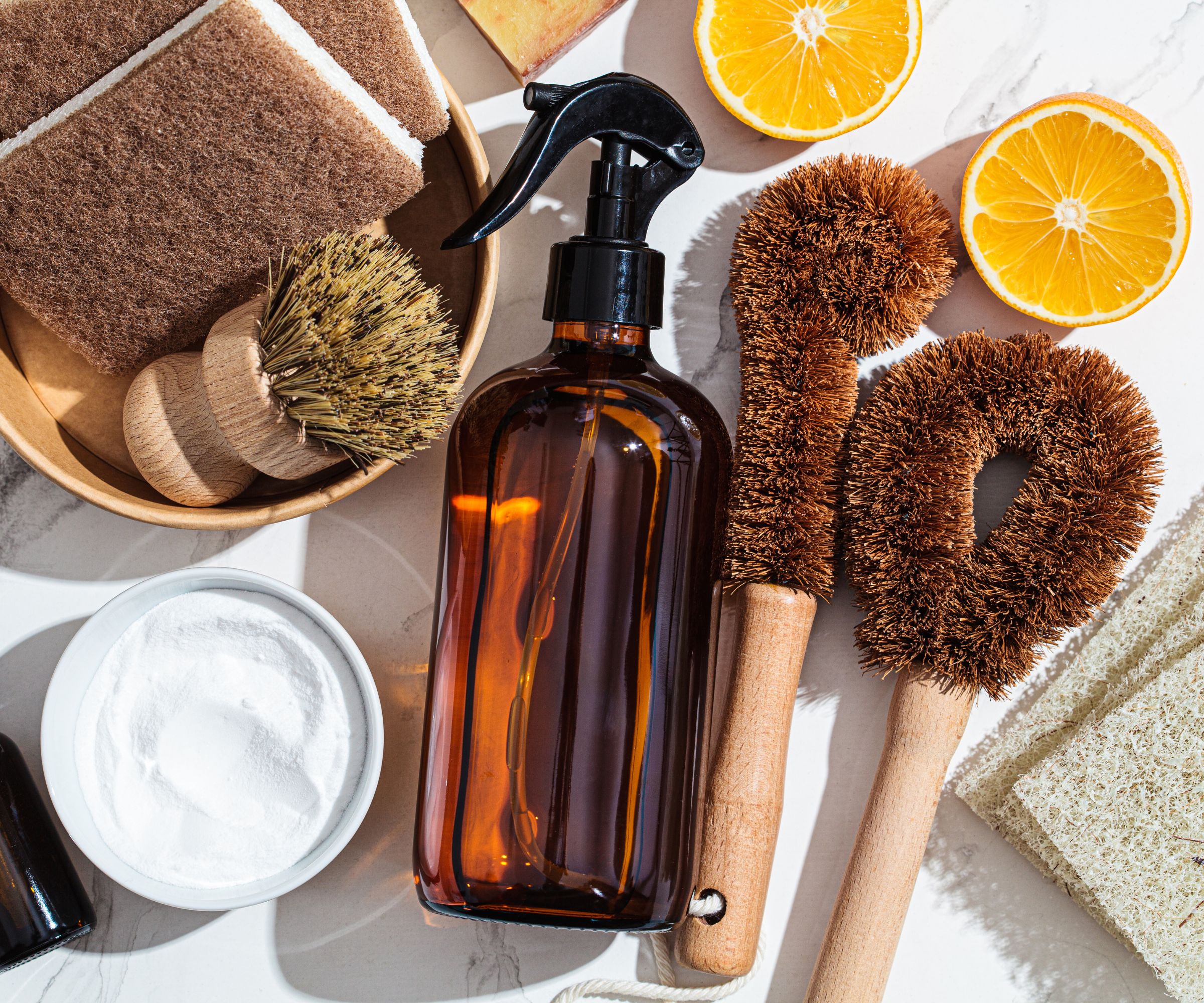
If your rental property has any serious or common type of household mold, tenants have the right to withhold rent or sue for failings in the living standard of the property. In California for example, landlords are allowed a period of 30 days to deal with mold issues and usually try to limit liability by dealing with it straight away.
According to real estate attorney Jonathan Feniak, specifically ignoring a complaint about mold is extremely detrimental. Legally, landlords are bound under US laws, such as the Residential Landlord-Tenant Act, to maintain rental units in a habitable condition, which includes controlling mold.
‘Failure to deal with mold complaints promptly might escalate to violations of health codes, resulting in fines or legal suits,’ says Jonathan. ‘Additionally, unchecked mold can cause health problems for tenants, making the landlord liable for medical expenses if negligence by the landlord can be proved.’
One effective way of removing mold from your home is by using natural solutions, such as cleaning with vinegar and lemon juice, or a mold-busting spray such as RMR-86 Instant Mold and Mildew Stain Remover from Walmart. Not only does using cleaning products help get rid of mold, doing so also helps to improve air quality indoors.
Learn how to check if your home has mold and the habits that increase the risk of mold. Knowing these can help you put in preventative measures such as increasing ventilation in the home, and guiding your tenants on how to lower the risk.
HVAC expert Josh Mitchell of Air Conditioner Lab recommends these products to help you get rid of mold.
All prices correct at time of publishing.
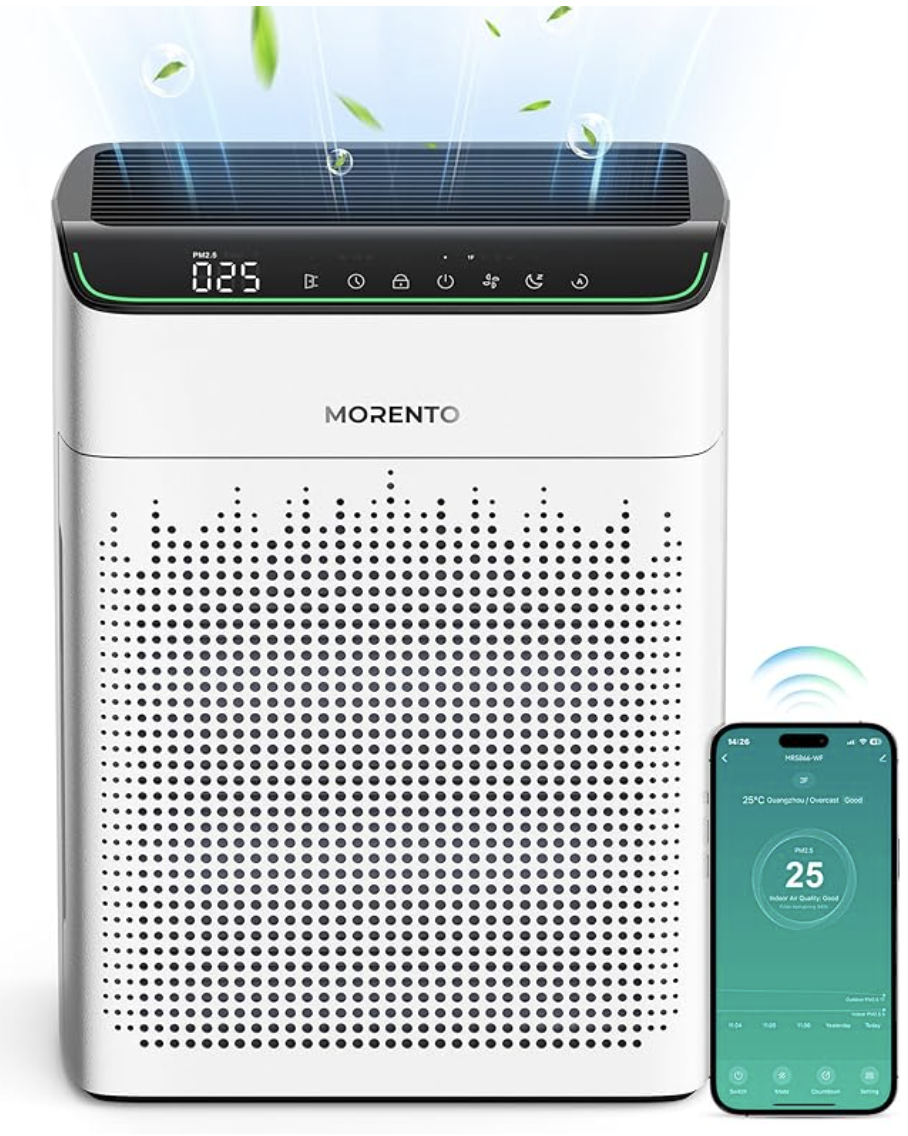
Rated 4.8 out of 5 by happy shoppers, this air purifier has a dual air intake, greatly improving the purification speed with advanced HEPA filters. It can cover 1290 square feet making it a good option for open plan living spaces or rooms with tall ceilings. An air purifier can remove mold spores from the air to stop spread.
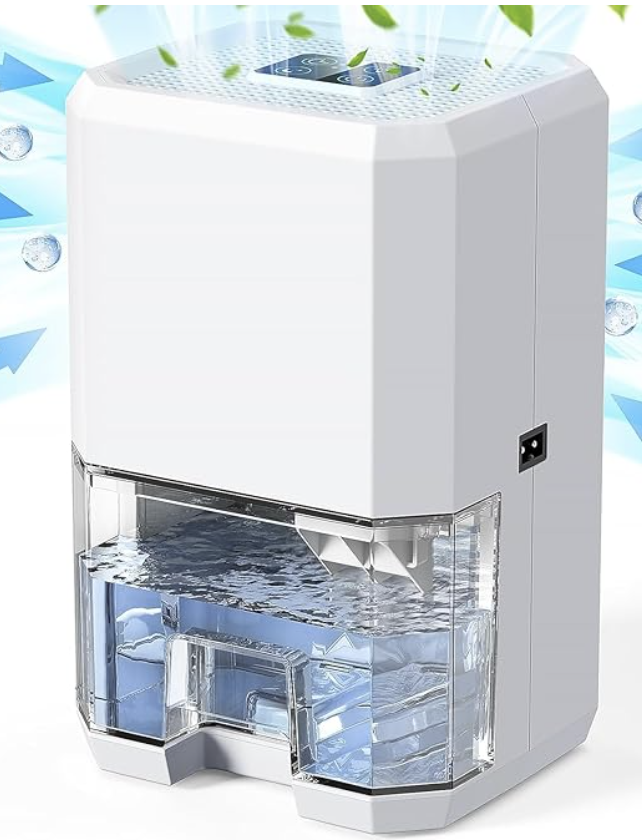
This dehumidifier a timer function with auto-shut off and runs quietly, making it a good option for renter bedrooms. It's small too, making it easy to move it where it's needed from kitchens during cook times or bedrooms overnight when condensation tends to be highest. Reducing moisture lowers risk of mold.
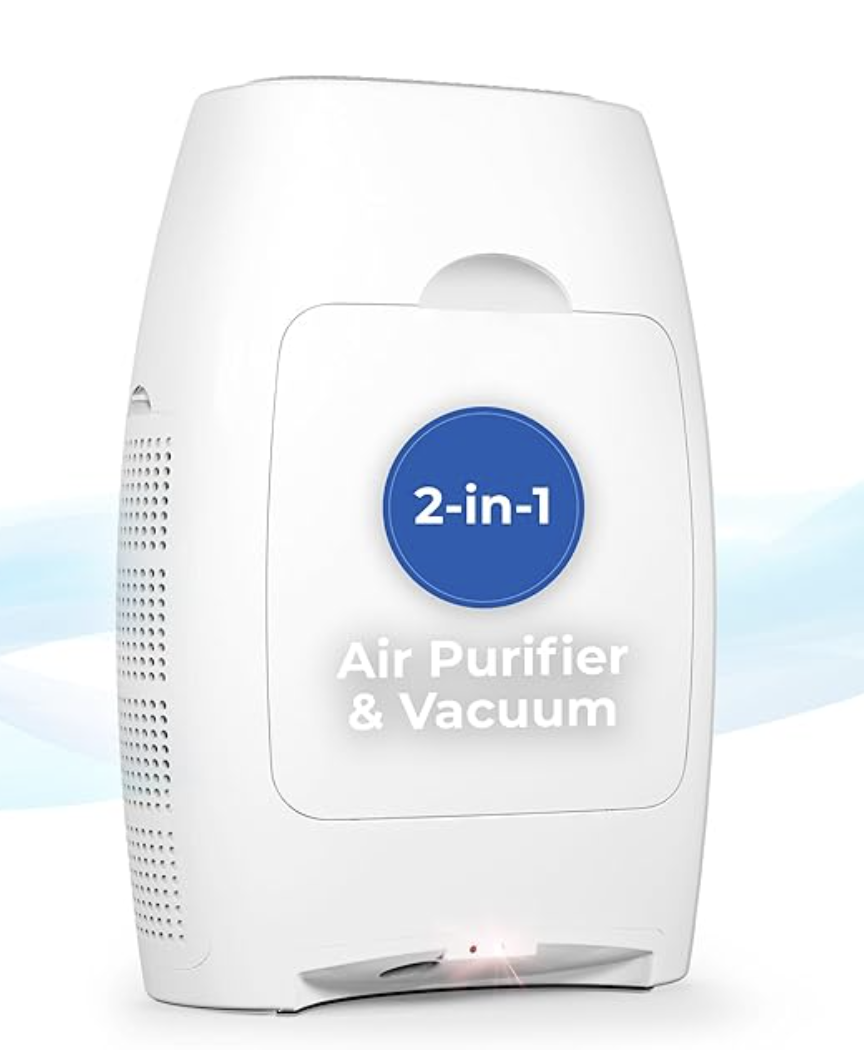
This touch less air purifier uses infrared sensors to detect dust and debris whilst using HEPA filters to clean the air around it. It has a vacuum mode too, so you can sweep debris towards it and it will automatically detect it with sensors and suck up the mess.
2. Electrical hazards
‘Sometimes minor electrical issues can create serious concerns for your tenants,’ says licensed realtor Rachel Stringer. ‘These should not be overlooked because it can cause a fire risk and even breaches local regulations regarding safety measures, such as the NEC (National Electrical Code).
Prompt action from the landlord helps limit any liabilities and makes it easier for them to manage the costs of repairs or even penalties.
Learn more about the most common fire risks in a home, including faulty electrics. Even something as picking the right electrical wall switches can help you lower risk to tenants and your property before renting out the space.
3. Water intrusion or drainage issues
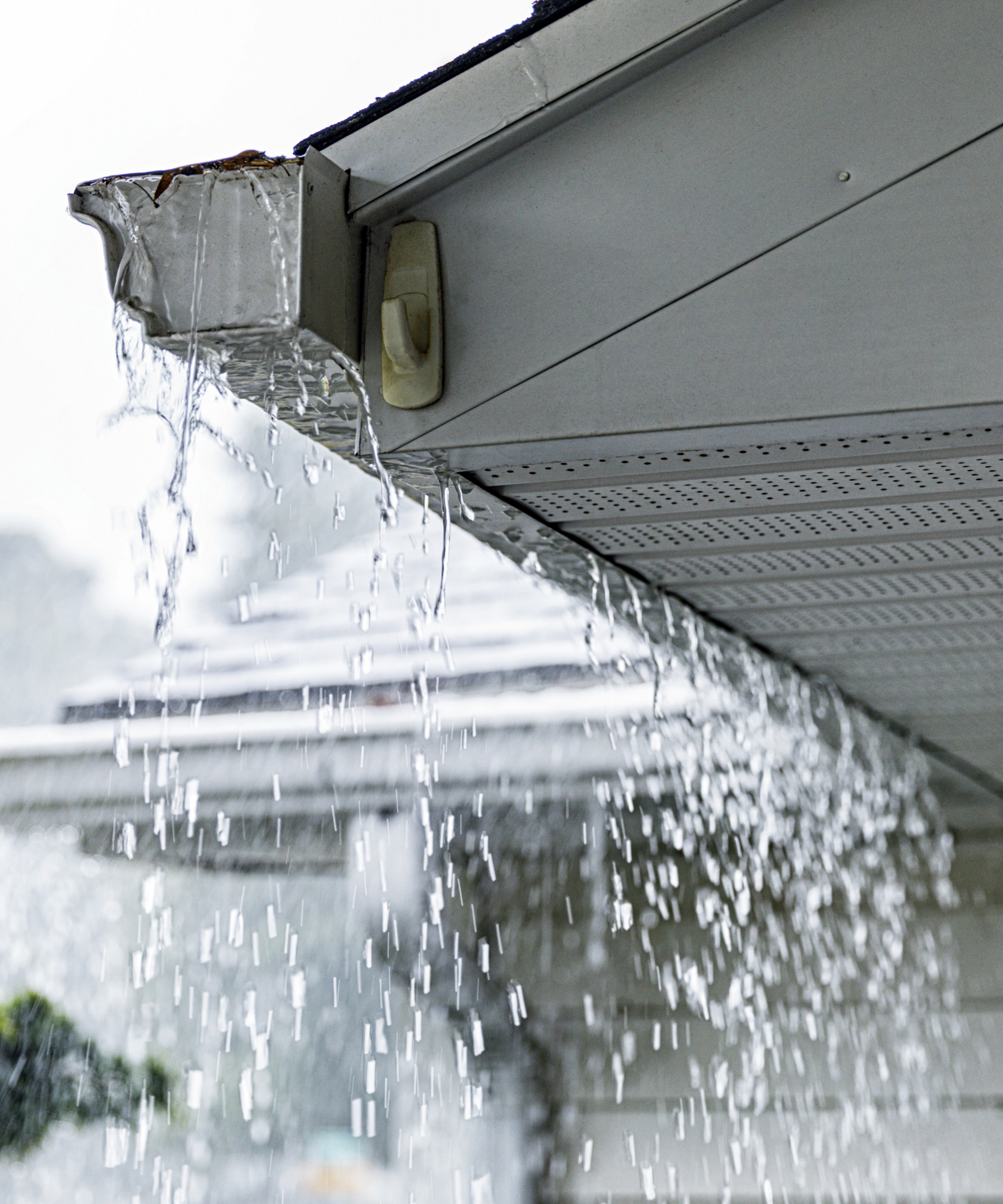
Plumbing problems are another one you can’t delay. A leaky pipe can turn into water damage, and that opens the door to mold and structural issues. Burst pipes, hot spots for leaking roofs in the winter, as well as poor drainage systems can easily snowball into greater issues for tenants like pest control problems and damp.
‘I always tell landlords to treat urgent plumbing calls, like a burst pipe, as emergencies – same-day fixes,’ says Eric Bramlett, realtor and owner of Bramlett Real Estate. ‘Even smaller issues, like a slow drain, should be handled quickly before they become bigger headaches.’
Tenants have the legal ability to notify the government regarding your negligence. Legally, it is the responsibility of the landlord to ensure that complaints of water or drainage are dealt with within a 'reasonable' timeframe, however tenants can push back hard if their living conditions are affected.
4. Pest infestations
Pests like rodents and insects can be a health risk, causing allergies, asthma, and other illnesses. Not taking precautions to control or eliminate pest issues in the beginning might cause serious damage to the property and ill health for your tenants.
‘Pest infestations should be dealt with as soon as they are reported,’ recommends real estate specialist Martin Boonzaayer. ‘Even a small infestation can quickly grow into a much bigger problem. If pests are not dealt with quickly, they can damage your property and lead to tenant dissatisfaction. Tenants may decide to move out, file complaints, or even take legal action, resulting in lost income and costly repairs.’
Most states require landlords to maintain pest-free properties. Failure to address infestations promptly may violate local tenant laws, giving tenants the right to sue or withhold rent. If your tenants do report a pest issue, it may be a sign to call professional pest control service immediately to investigate before the issue becomes worse.
Learn about the mistakes that make pest infestations worse so you're not tempted to DIY the fix and actually make things worse. You'll benefit from also knowing the most common ways pests enter homes. Make sure to seal up any gaps around doors, windows, wall cracks and utilities inlet and outlet areas using a weatherproof caulk such as clear Gorilla sealant, available on Amazon.
5. HVAC failures
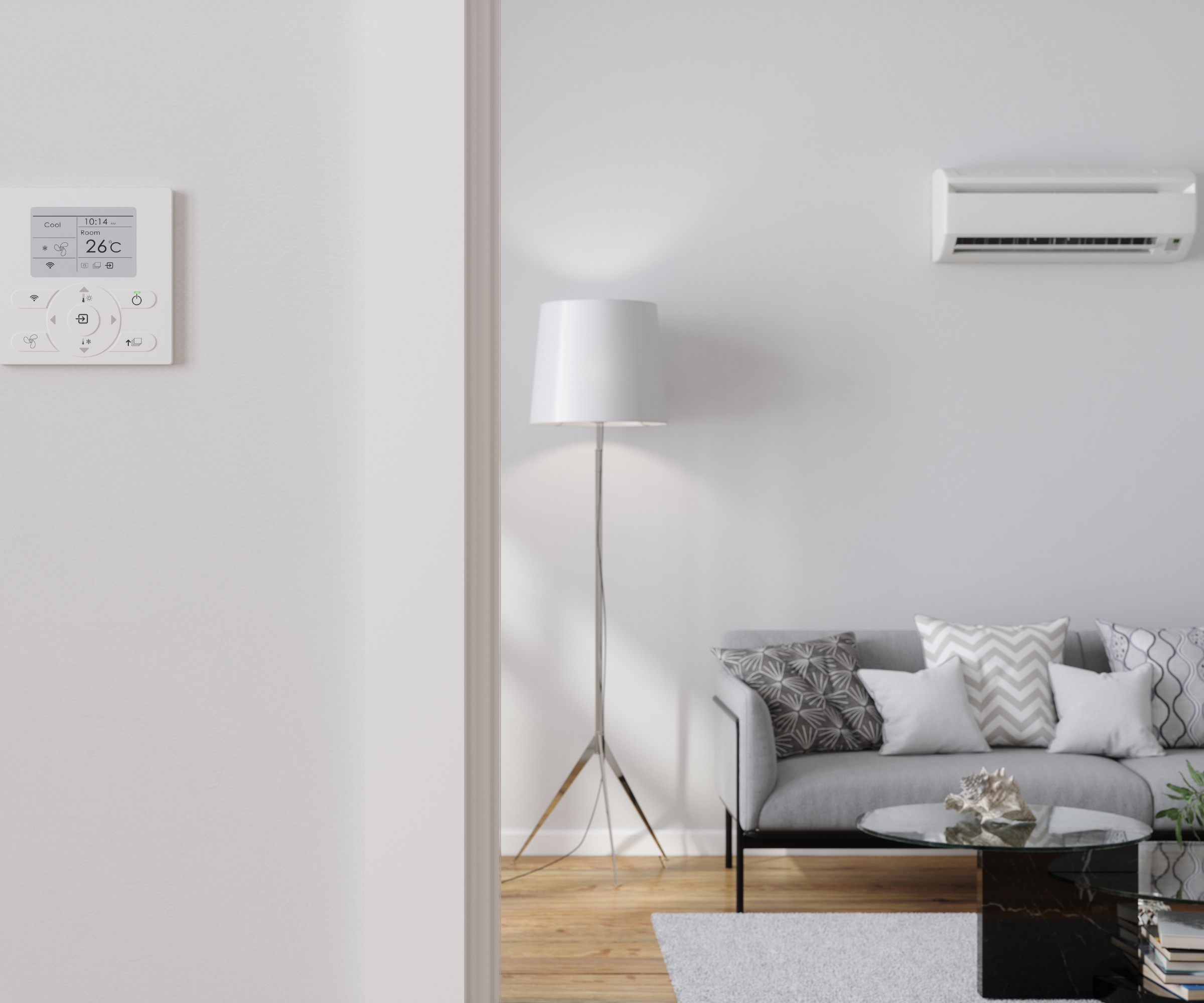
A broken heating or cooling system can make your rental unit uncomfortable, especially during extreme weather conditions. A broken furnace in winter or an AC unit in summer for instance can make the property unbearable for tenants and is likely to prompt complaints.
If tenants have raised minor issues it can be just a common heating problems you can repair yourself. Try cleaning your HVAC system with a HEPA filtered vacuum such as BLACK+DECKER dustbuster from Amazon. Sometimes by cleaning the unit with the vacuum and changing over the filters, you can restore the HVAC system to full working order.
Big faults however with heating and cooling systems should be repaired immediately, especially if the temperature inside the unit becomes extreme. In most states, landlords are required to provide heating and cooling systems that are in good working order and serviced regularly.
'Have your system professionally cleaned and inspected twice annually,' says Heidi Gehring, director of residential HVAC product manager for Carrier. ‘Use a licensed technician and complete a full service and any repairs within 1–2 days.’
Review local tenant rights laws to understand the specifics in your area. Delays in repairing heating or cooling systems can lead to tenant complaints, a reduction in rent payments, or even tenants breaking their lease.
Learn how often a HVAC system should be serviced to keep it running well and avoid issues cropping up in more extreme weather conditions when these systems are worked harder and more often.
By prioritizing these overlooked issues, landlords can keep their tenants happy while avoiding costly disputes or legal repercussions.
If you’re unsure about your obligations or how to handle specific complaints, research your local laws or consult a property management expert. Staying ahead of these issues will save you time, money, and stress. A good landlord-tenant relationship is worth the effort.
Next, delve into the best trees to plant for privacy, which will help keep your tenants comfortable if their windows or outdoor space is overlooked, and the landlord's cleaning checklist that's worth completing before handing the keys over to a new tenant.
Sign up to the Homes & Gardens newsletter
Design expertise in your inbox – from inspiring decorating ideas and beautiful celebrity homes to practical gardening advice and shopping round-ups.

Seraphina is a contributing editor at Homes & Gardens, writing Solved features on organizing and storage. She loves to decorate and also grow her own produce from her home in London. Her previous experience includes working at Women's Health and Fabulous Magazine.
-
 Kevin Bacon and Kyra Sedgwick's rustic kitchen island is stunning, but controversial – designers say you can get the look without the hassle
Kevin Bacon and Kyra Sedgwick's rustic kitchen island is stunning, but controversial – designers say you can get the look without the hassleA popular material finds an unorthodox home in the couple's kitchen, but experts disagree on whether it should be used – here's how to do it instead
By Sophie Edwards
-
 How to grow grapefruit for homegrown sweet and tangy, highly nutritious harvests – a fruit tree expert shares their planting and care tips
How to grow grapefruit for homegrown sweet and tangy, highly nutritious harvests – a fruit tree expert shares their planting and care tipsFrom planting to harvesting, this is all you need to know about grapefruit trees
By Drew Swainston
-
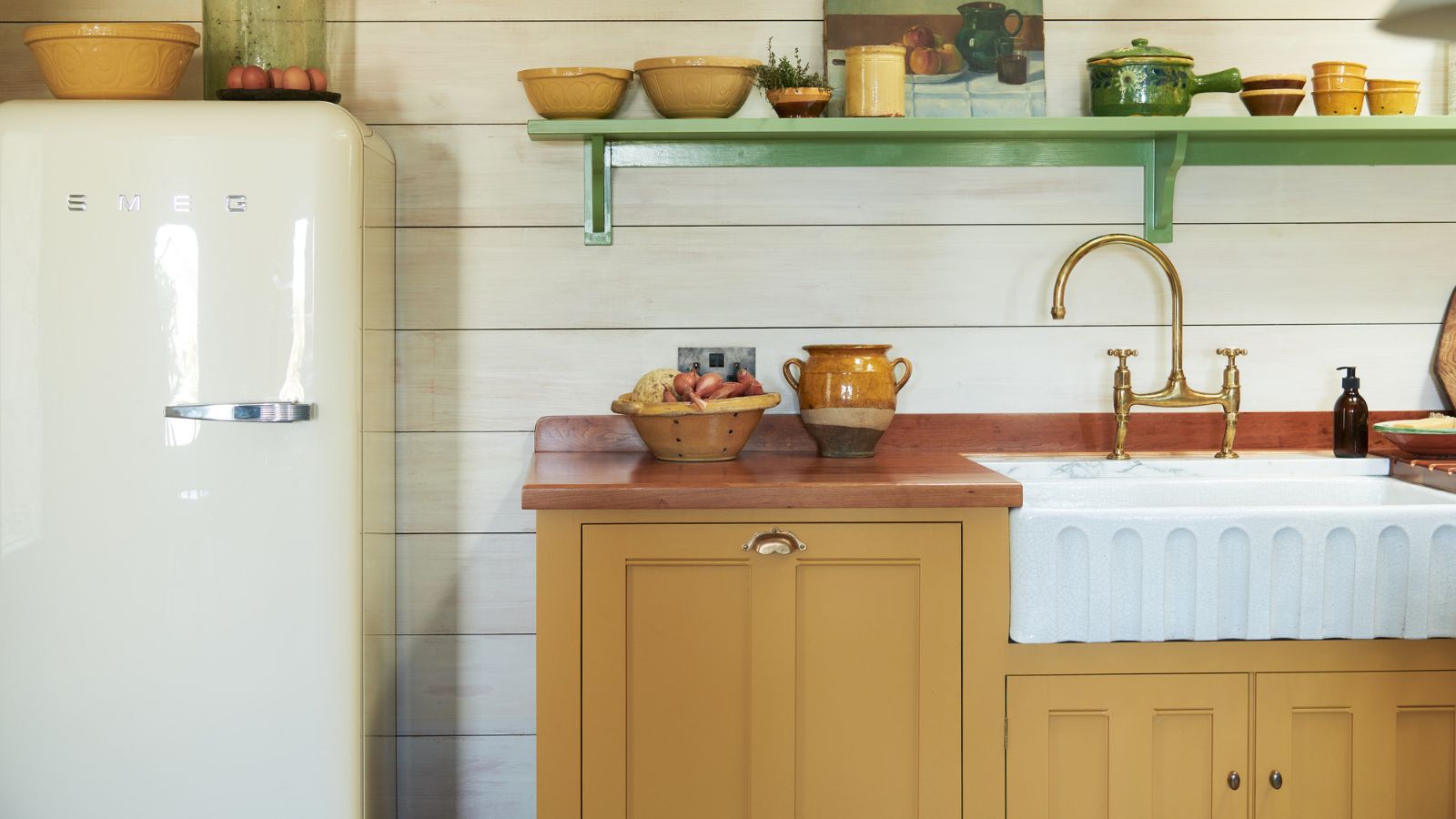 The 5 worst things you can do to your fridge – these will drive up energy costs and result in pricey and regrettable repairs
The 5 worst things you can do to your fridge – these will drive up energy costs and result in pricey and regrettable repairsIt's crucial to swerve these blunders, appliance experts warn
By Ottilie Blackhall
-
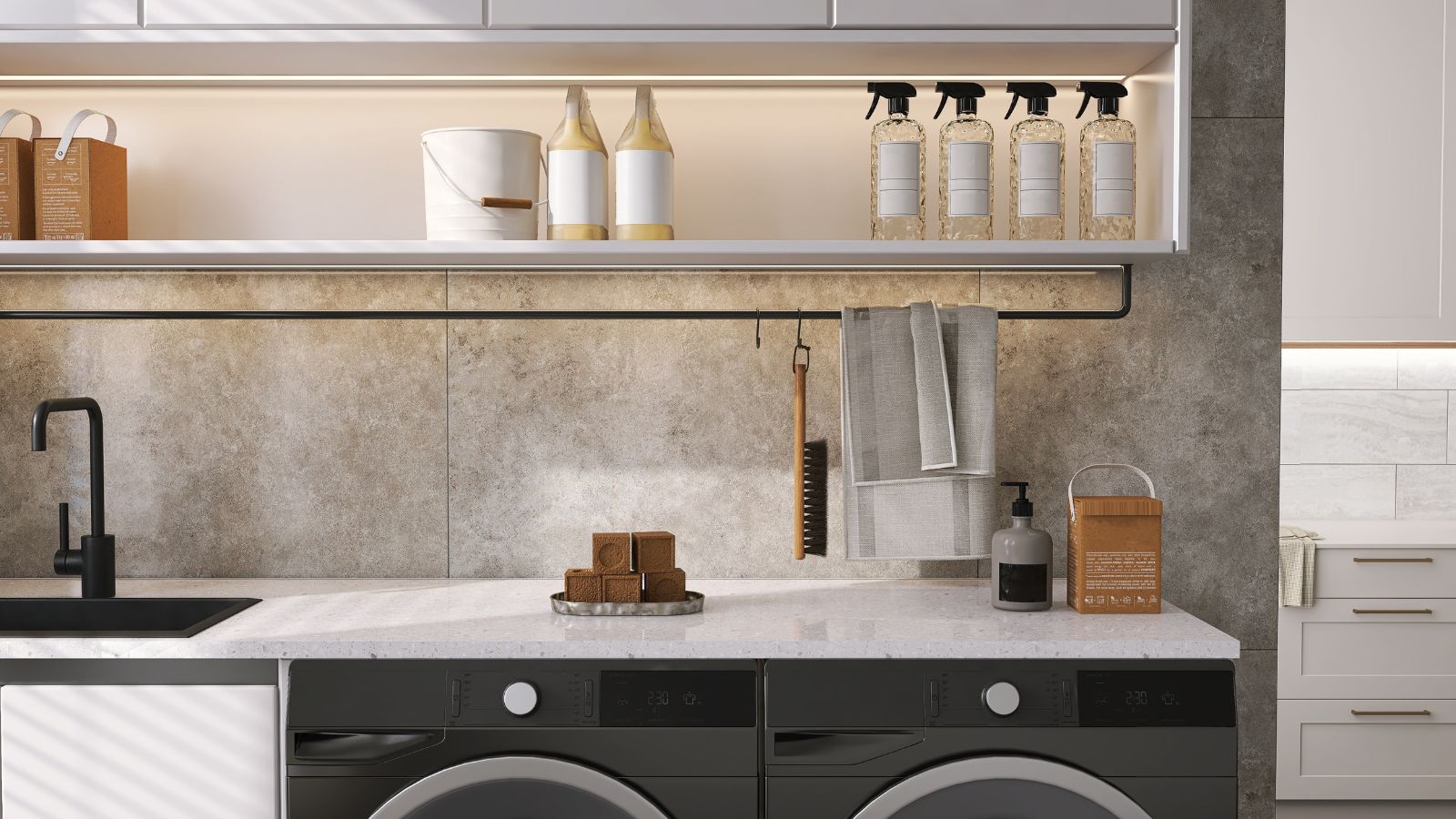 Extend the lifespan of your appliance with 5 simple but crucial washing machine maintenance tips
Extend the lifespan of your appliance with 5 simple but crucial washing machine maintenance tipsFrom cleaning the filters to keeping the door open, experts reveal the washer tips they swear by
By Andy van Terheyden
-
 5 vital ways a home battery backup can help with your most urgent needs in a power outage – from heating to flood prevention and calls
5 vital ways a home battery backup can help with your most urgent needs in a power outage – from heating to flood prevention and callsExperts say they're a worthy investment
By Clement Feng
-
 I’m an HVAC technician, and this is when I turn on my AC each year – plus 5 checks I always do beforehand
I’m an HVAC technician, and this is when I turn on my AC each year – plus 5 checks I always do beforehandSave yourself an AC hassle by running my checks and turning it on before big heat hits
By Josh Mitchell
-
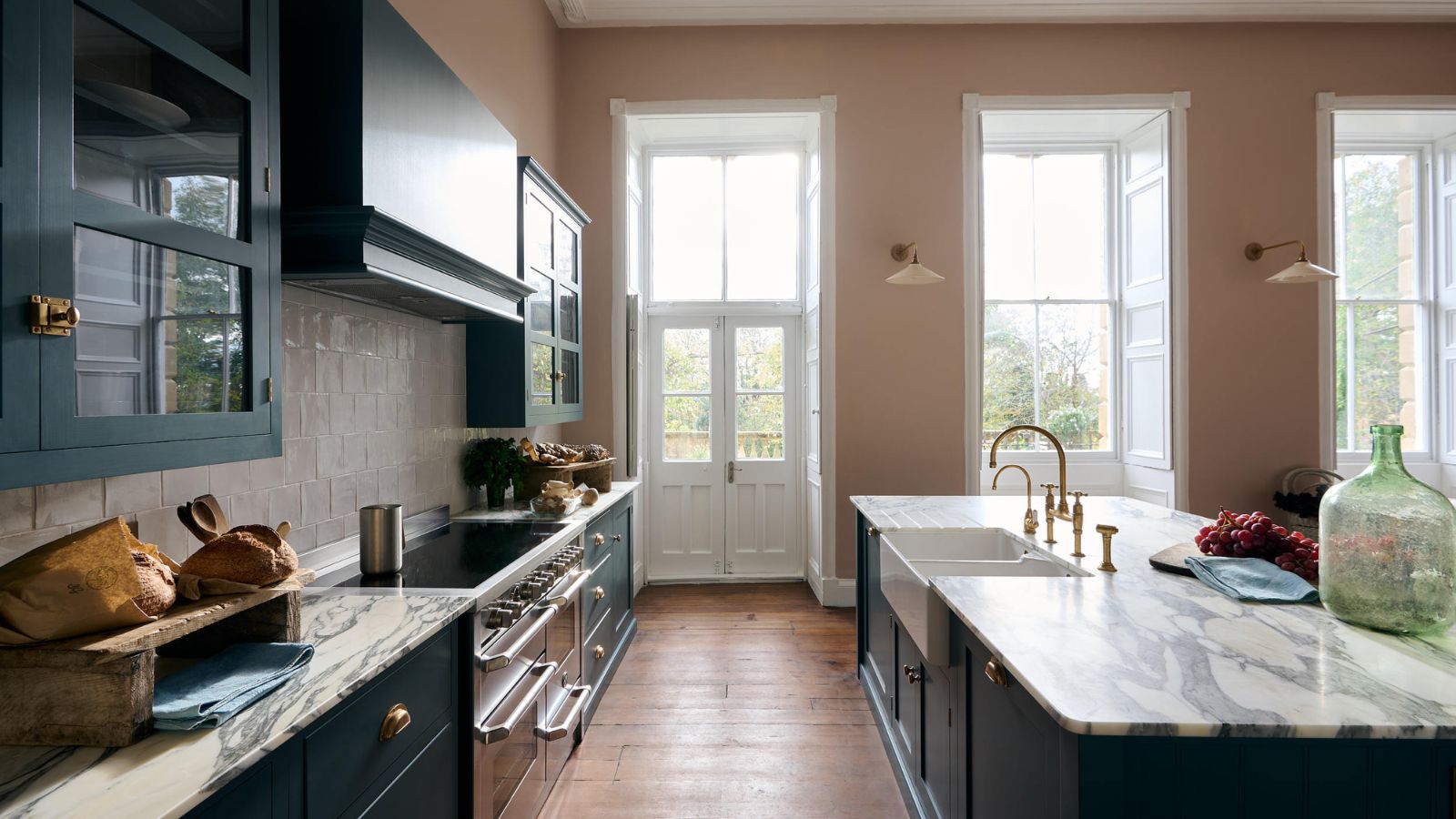 6 things you should never throw in the trash – and what to do for safe disposal instead
6 things you should never throw in the trash – and what to do for safe disposal insteadFrom batteries to space heaters, experts reveal what not to throw
By Andy van Terheyden
-
 7 spring home maintenance mistakes to never make – overlooking these now can lead to pest problems and structural damage
7 spring home maintenance mistakes to never make – overlooking these now can lead to pest problems and structural damageHome improvement pros share common mistakes and what to do instead
By Eve Smallman
-
 10 common but little-known HOA fines to watch out for – and how to avoid them
10 common but little-known HOA fines to watch out for – and how to avoid themFrom sprinklers to garage doors and external pipes, your HOA contract may leave you open to a fine
By Eve Smallman
-
 I’m a homes editor and these are the 4 vital storage items I’m 'adding to cart' this spring – and why you should too
I’m a homes editor and these are the 4 vital storage items I’m 'adding to cart' this spring – and why you should tooI've learned a few hard lessons in recent weeks and these storage solutions will help
By Punteha van Terheyden